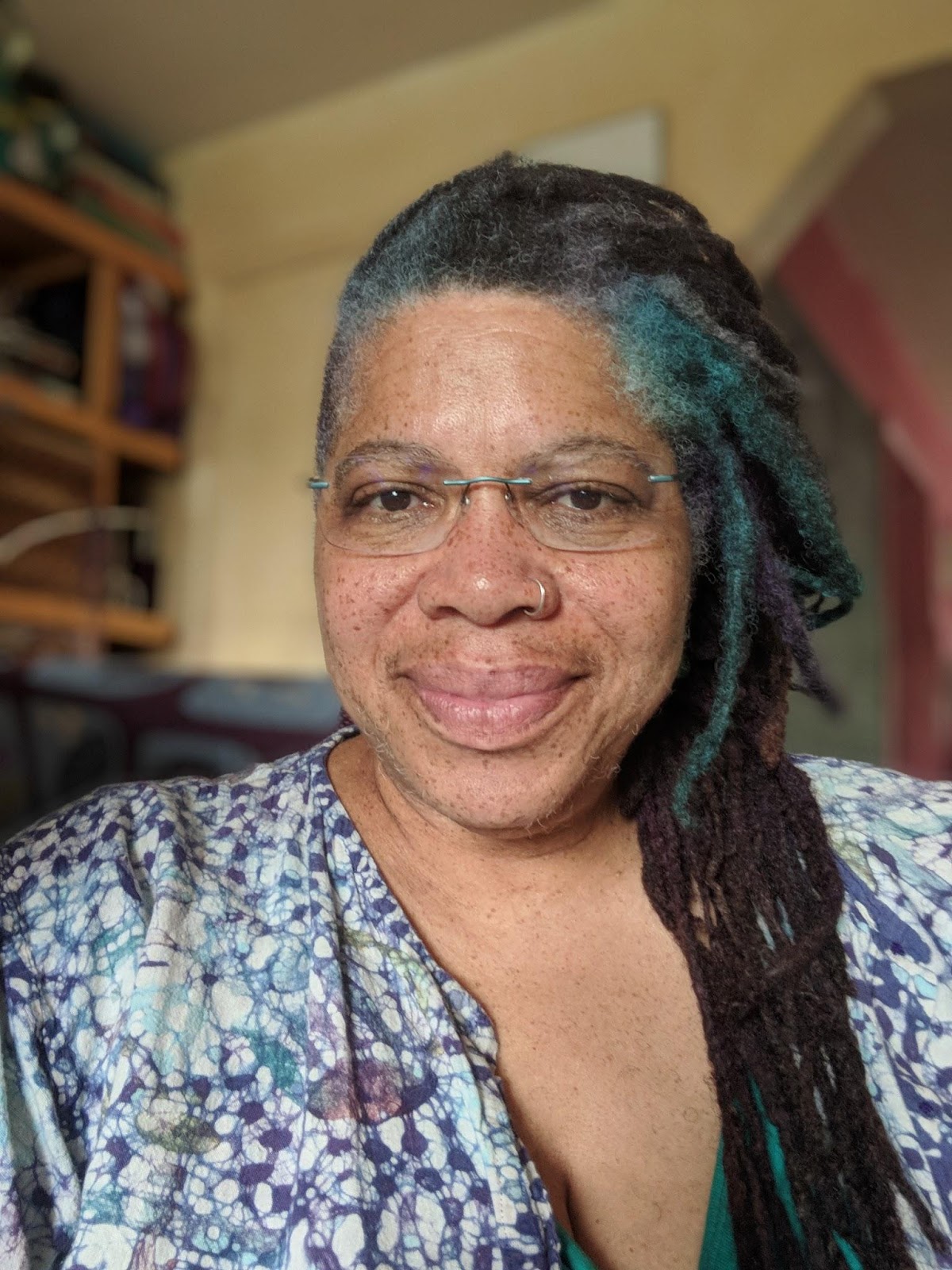
Greetings good people, I’m Geri Peak of Two Gems Consulting. I’m refining my work through a liberatory lens with my Leaders in Equitable Evaluation And Diversity practicum team: Nitya Venkateswaran, Jennifer Torres, Kimberly Harris and Jochebed Gayles. Using a learning circle approach we aspired to elevate the cultural power of my existing tools inspired by the anticolonial insights of powerful young innovators, including our honorary crew member, Shawna Murray-Browne.
Cool Trick:
(Neo)Colonialism isn’t cool. Decolonization is definitely tricky. Tuck and Yang clarify: “The metaphorization of decolonization makes possible a set of evasions, or “settler moves to innocence”, that problematically attempt to reconcile settler guilt and complicity, and rescue settler futurity.” Or, to put it plain, misuse of “decolonization” covers white hypocrisy while refusing to restore land and cede power. So what’s an evaluator to do? It’s our privilege to strive for accuracy: unpack the language of transformation and apply it to reimagine systems that lead toward liberation.
Hot Tips:
Tell the Truth! Shawna’s 2-hour presentation, Uprooting Epistemicide, examines the language and theoretical roots of racialized harm, clarifies the accurate use of “decolonization” and poses 6 anticolonial and liberatory questions evaluators can adapt towards more meaningfully supporting those striving for autonomy, e.g. “Does [this evaluation] seek to explain an inquiry posited by the community being explored?”
Let’s Get Spiritual. We (Black, Indigenous, People of Color) unashamedly blend theory, practice and spirit insight. Manulani Aluli Meyer’s mantra that when we conduct research, “we are remembering what we already (k)new,” pairs post-quantum reality with indigenous wisdom to strike universal chords. Susan James’ exploration of sacred Orisha traditions recommends emergent strategies to counter damage-centered research. I use meditation to spark deeper insight from data, others find the ancestors’ guidance through dreams/prayers/stories and consult community wisdom. I particularly appreciate how prophetic revelations serve as levers for social change and moderators of extractive research when science and religion are harmonized, as explained in Revelation and Social Reality.
Nothing About Us Without Us. Check out Dayvon Love’s black paper, an awesome policy primer that premises a 3-tiered framework for combating white-think: 1) stop pathologizing us; 2) use our innovators and methodologies; 3) make/take space for our leadership. Evaluators show anticolonial allyship by learning how harm is embedded in the systems we assess and uplifting BIPOC+ innovators and practices to spark change.
Rad Resource:
Everything linked above is super rad, but please check out Lesley Ann Noel’s emancipatory research work and her card set to stimulate design thinking.
Lesson Learned:
Transforming ourselves ? transforming systems. These reflections encouraged me to offer a radically culturally responsive learning space to uplift liberation as evaluators. The journey led us to balance the tangible goal of revising my evaluation tools with the need and desire for evaluators of color to look deeply and continue to integrate these ideas meaningfully through an ongoing series of meetings.
As Manu says: If knowledge is power then understanding is liberation. This is life work, this is spirit work.
Ase-o!
Do you have questions, concerns, kudos, or content to extend this aea365 contribution? Please add them in the comments section for this post on the aea365 webpage so that we may enrich our community of practice. Would you like to submit an aea365 Tip? Please send a note of interest to aea365@eval.org. aea365 is sponsored by the American Evaluation Association and provides a Tip-a-Day by and for evaluators.

Thank you for your succinct, direct, resourceful and article! I am currently a student in a course on Program Inquiry and Evaluation, as part of my pursuit to complete my Professional Masters of Education. I came across this site as a recommendation from my professor, but specifically chose this article to read. As I work towards understanding my role in perpetuating colonialism and its individual and systemic impacts, this article was very helpful to me.
Thank you for giving yet another example of the way in which colonization and its impacts are prevalent through all systems and institutions, including evaluations. While I strongly believe it to be true that impacts colonization are present in all systems, I am still personally working towards being able to identify specific examples of it in every system I come across. This question resonated with me, “Does [this evaluation] seek to explain an inquiry posited by the community being explored?”. My learnings, from this question and your post overall, is that communities, specifically BICOP communities, should hold the authority to inquire about, permit, and implement evaluations taking place within their own community. Evaluations can be powerful tools for understanding, development, change etc. Thus, in order to ensure we work towards decolonization, in which the stealing of power and autonomy is synonymous, the power to decide when/how and of whom evaluations are conducted and what to do with the findings, must rest in the hands of the community itself.
Sincerest thanks for the important work that you do.
Sorry for the late reply, but YES and YAAAASSS!
And sincere thanks.
Harambee!